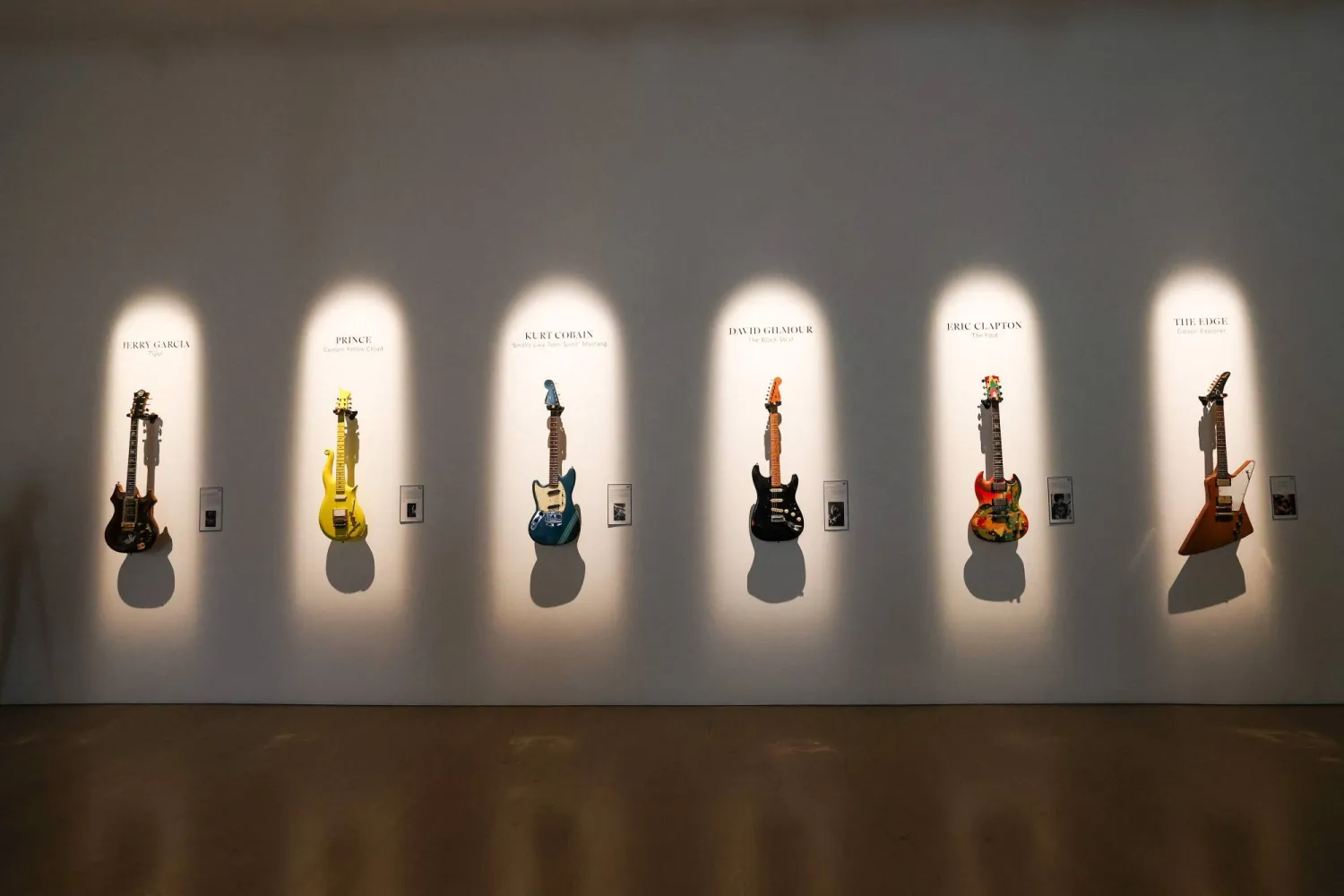Raymond "Red" Reddington is finally hanging up his famous black fedora and — fitting for a manipulative genius — he's doing it on his own terms.
"The Blacklist" ends its 10-year NBC run Thursday with a two-hour send-off, and star James Spader says the cast and crew relished the chance to take their time saying goodbye.
"I was very, very glad we were able to end it exactly the way we wanted to end it. It was deliberate and we weren’t taken by surprise in terms of when the ending was going to come," he tells The Associated Press. "You’ll see that the ending has conviction and we commit to it."
The end of "The Blacklist" is a swan song for Reddington, one of the most intriguing and delicious characters on television. A master of brokering shadowy deals for criminals, he offered his help to the FBI tracking down the world’s most dangerous criminals.
Spader reveals that the show — filmed mostly in New York City with an embrace of international characters — went overseas for the finale. "The Blacklist" ends in Spain.
"I really felt like this was complete and I loved how it really completed a circle, in a way," he says. "It wasn’t just an unbroken line from point A to point Z, but it was a circle of sorts."
The show attracted Spader all those years ago because he was looking for something that would sustain both his interest and the viewer's for more than 20 episodes a season, or in his words, create a "limitless landscape."
The pilot introduced Reddington as a fugitive criminal whose enterprises were worldwide, checking one box for the actor. Spader was also looking for a show that was fluid in tone, which the pilot also delivered.
"I would not be as curious about a show that was either just a drama or a show that was just a comedy," he says. "I felt that it was sort of nice that this show was very, very intense and brutal at times and then, at other times, very irreverent and sometimes very emotional."
Reddington, infused with Spader's elliptical charm, was a stylish addition to network TV, a character who could make an amazing frittata with just a toaster oven and who collected sabers from the Crimean War. He was not good, certainly, but not bad, either. "He’s a scary monster and people like him," Spader says.
Reddington is deeply cultured, a man able to converse about Cary Grant, the Piazza del Campo in Siena or Kai Tak Airport. Nicknamed "The Concierge of Crime," he said deeply profound things like, "Not every answer is worth knowing" and "I can only lead you to the truth. I can’t make you believe it."
"He inhabits the whole world, he really does. He lives in it and he really loves it. And he loves life," says Spader, a three-time Emmy winner. "I guess one would understand the value of life if one has to take it every so often."
Even when laying low, Reddington shone. In the fifth season, he was reduced to living in a motor lodge, hanging poolside wearing a baseball cap, but rose again. Reddington was fearless.
"He’s someone who would show reason and caution but he was never fearful of anything. That sort of combination, I think, is compelling for people when faced with so much in one’s life and the world around you," Spader says.
"I think there’s something compelling, I guess, in losing yourself in a story, going on a ride along with someone, not fearful of whatever might be around the next corner or what might be across that threshold that you’re just about to cross."
Another thing that sustained "The Blacklist" was its marriage between a weekly procedural needing an end and an overarching, serialized story that started with the pilot and never paused until the finale.
"People could enter the show or sort of access it at any time, and there would be a certain amount of satisfaction in that," says Spader. "And yet for those people who wanted to stay with it, then it was satisfying as a long and circuitous journey."
Ten years ago, Spader's Reddington promised the FBI access to his lengthy roster of politicians, mobsters, hackers, spies — "the criminals who matter," he taunted agents in the pilot, "the ones you can’t find because you don’t even know they exist."
A decade later it was Spader during the Hollywood writers' strike who helped get the finale onto screens. He turned out to be the only executive producer able to help get the last two episodes out.
Spader said Reddington is a welcome addition to his off-kilter gallery of TV characters, which includes Alan Shore on "Boston Legal" and Robert California from "The Office."
"He sits very comfortably with all the others. He’s got his own place at the table," the actor says. "It feels complete and sometimes you’re not done with someone that you’ve played. I don’t harbor any regret."









